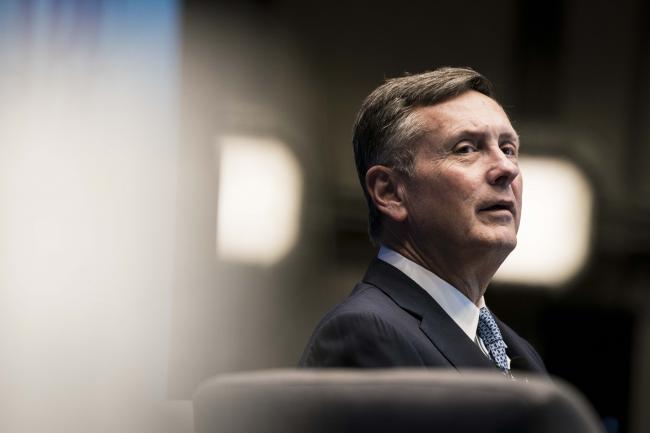(Bloomberg) -- Federal Reserve Vice Chair Richard Clarida said the U.S. economy faces a long and uncertain recovery from the Covid-19 pandemic, and requires continued support from monetary and fiscal policy.
“It will take some time to return to the levels of economic activity and employment that prevailed at the business cycle peak in February, and additional support from monetary -- and likely fiscal -- policy will be needed,” Clarida said in remarks prepared for delivery Monday to an online event hosted by the American Bankers Association. “The economic outlook is unusually uncertain.”
Clarida’s remarks on the economy largely reprise a speech he gave on Oct. 14.
The U.S. economy’s rebound has shown some signs of slowing in recent weeks as fiscal stimulus passed in early spring has expired and the Covid-19 virus makes an autumn resurgence. The most recent economic data has been mixed.
Employment, consumer spending and consumer sentiment have each made important strides but remain well below pre-pandemic levels. Manufacturing unexpectedly declined in September.
The chance that lawmakers in Washington will agree on a new round of spending before the Nov. 3 election appears low but not dead. Democratic House Speaker Nancy Pelosi on Sunday set Tuesday as a deadline for more progress with the White House on a deal, extending her previous deadline by a day. President Donald Trump renewed his offer to go beyond the dollar amounts now on the table.
The spread of Covid-19, meanwhile, has picked up in several countries around the world. Global coronavirus cases have exceeded the 40 million mark, with new cases in the U.S. averaging more than 50,000 a day. Millions of Europeans are facing tighter restrictions on movement, with London and Paris enforcing stricter curbs.
Clarida said the Fed had made important changes in banking regulation and supervision to help keep credit flowing to households and firms. The central bank is also engaged in efforts to modernize the Community Reinvestment Act, which aims to address racial and geographic inequities in the access to credit, he said.
©2020 Bloomberg L.P.
